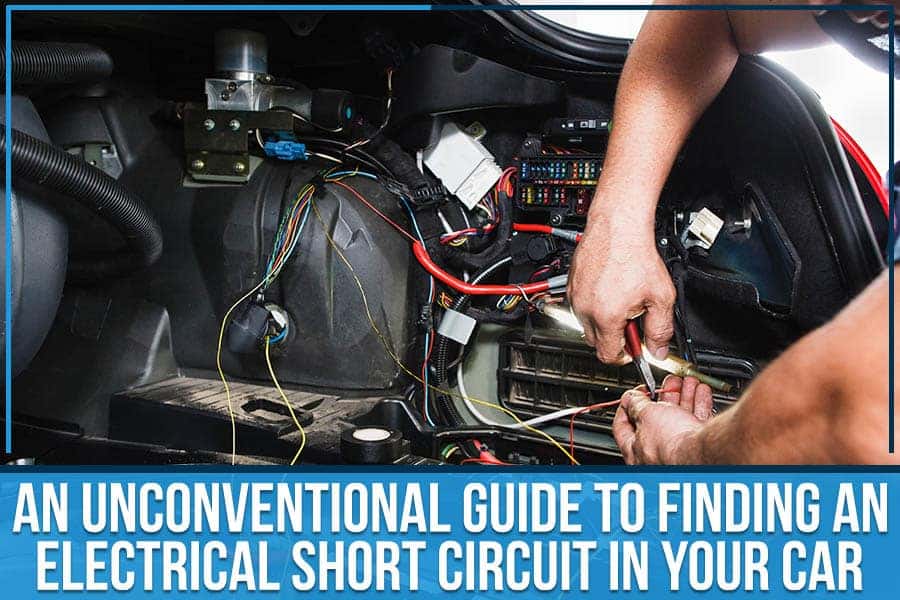To prevent car electrical system failure, follow these 9 best tips: regular maintenance check-ups, inspecting the battery, keeping terminals clean, checking the alternator, examining the starter motor, ensuring proper wiring connections, protecting the fuse box, maintaining the voltage regulator, and being cautious with jump-starting. Proper maintenance and care for a car’s electrical system is crucial for its overall performance and reliability.
Negligence towards these vital components can lead to various issues like battery malfunction, starter motor failure, or even a complete breakdown. We will discuss nine best practices for preventing car electrical system failure. By following these tips, you can maintain a healthy electrical system and avoid costly repairs.
So, let’s explore these essential tips that will keep your car running smoothly.
1. Routine Maintenance
When it comes to preventing car electrical system failures, routine maintenance plays a crucial role in ensuring your vehicle functions smoothly. Here are essential tips to keep in mind:
Check The Battery Regularly
Regularly inspect the battery for any signs of corrosion or leakage to prevent unexpected failures.
Inspect The Alternator And Starter
Ensure the alternator and starter are in good working condition by checking for any unusual noises or issues.

Credit: www.ebay.com
2. Understanding Warning Signs
Understanding the warning signs of car electrical system failure is crucial for the early detection and prevention of potential breakdowns. Ignoring these signs can lead to costly repairs and inconvenience on the road.
Dimming Headlights
One clear warning sign of electrical system failure is when your headlights start to dim while driving. It could indicate an issue with the alternator or a weak battery. Ignoring this sign may result in a dead battery or total loss of power, leaving you stranded.
Strange Smells Or Sounds
Pay attention to any strange smells or sounds coming from your car. A burning smell could be an indication of an electrical issue with wires or fuses overheating. Similarly, clicking or buzzing sounds can signal problems with the electrical components.
If you notice any of these warning signs, it’s important to take action immediately to prevent further damage. Here are some steps you can take to address these issues:
- Check battery connections: Ensure the battery connections are tight, clean, and free from corrosion. Loose or corroded connections can disrupt the electrical flow.
- Inspect fuses and relays: Check the fuses and relays related to the electrical system. Replace any damaged or blown fuses.
- Test the alternator: If your headlights continue to dim, it may indicate a failing alternator. Test the alternator’s output using a multimeter to determine if it needs replacement.
- Look for wire damage: Inspect the wiring harness and connectors for any visible damage or wear. Replace any damaged wires to restore proper electrical function.
- Address strange smells: If you notice a burning smell, seek professional help immediately. Avoid driving the car until the issue has been resolved.
- Don’t ignore strange sounds: Unusual clicking or buzzing sounds often indicate a loose or damaged electrical component. Have it inspected and repaired as soon as possible.
- Maintain a regular maintenance schedule: Regularly servicing your car can help prevent electrical system failure. It allows professionals to identify and address potential issues before they escalate.
- Invest in a voltage regulator: Installing a voltage regulator can further protect your car’s electrical system by stabilizing the voltage supply and preventing overcharging.
- Consider professional help: If you’re unsure about any warning signs or don’t have the necessary tools or expertise, it’s best to consult a professional mechanic. They can accurately diagnose and fix electrical system problems.
By understanding and recognizing the warning signs of car electrical system failure, you can take the necessary steps to address these issues promptly. Regular maintenance and proactive care can go a long way in preventing breakdowns and keeping your car running smoothly.
3. Importance Of Proper Wiring
When it comes to maintaining your car’s electrical system, ensuring proper wiring is vital for its overall performance and safety. From secure connections to utilizing the right gauge wire, there are several factors to consider when dealing with car electrical system failure. Here are some best tips to help you understand the importance of proper wiring:
Ensuring Secure Connections
In order to prevent potential electrical system failure, it is crucial to ensure secure connections throughout your car’s wiring. Loose or faulty connections can lead to unstable electrical currents, voltage drops, and even fires. To avoid such issues, it’s essential to regularly inspect and tighten all electrical connections, including battery terminals, fuses, and switches. Maintaining secure connections will help maintain the stability and reliability of your car’s electrical system.
Utilizing The Right Gauge Wire
Choosing the right gauge wire is another important aspect of proper wiring. The gauge of a wire determines its thickness and current-carrying capacity. Using a wire with insufficient capacity can lead to heat build-up, voltage drops, and potential damage to components. On the other hand, using a wire that is too thick for the intended application can be wasteful and unnecessary. It is crucial to refer to the manufacturer’s specifications or consult an expert to determine the appropriate gauge wire for each electrical component in your car.
Credit: classicmotorsports.com
4. Protecting Against Corrosion
Protecting your car’s electrical system against corrosion is crucial for maintaining its efficiency and reliability. Here are some essential tips to help you protect against corrosion:
Cleaning Battery Terminals
Regularly clean the battery terminals to prevent corrosion buildup and ensure a solid connection.
Using Anti-corrosion Products
Apply anti-corrosion products to the battery terminals and connections to protect against corrosion.
5. Addressing Fuse Issues
When it comes to addressing car electrical system failures, one common issue that can lead to problems is blown fuses. Identifying and addressing fuse issues is crucial in maintaining the proper functioning of your vehicle’s electrical system. Here’s how you can handle this specific problem effectively:
Identifying Blown Fuses
Identifying blown fuses is the first step in resolving electrical issues. When a fuse is blown, the metal strip inside will be visibly broken. You can use a multimeter to test the fuse for continuity to confirm if it’s blown. This is an essential skill for any car owner to have, as it’s relatively simple to do and can save you time and money at the auto shop.
Replacing With The Correct Amperage
It’s important to replace blown fuses with the correct amperage to prevent further electrical problems. Using a fuse with a higher amperage rating can lead to damage in your car’s electrical system, while a lower amperage rating may cause the fuse to blow again. Always consult your car’s manual to find the appropriate amperage for replacement fuses.

Credit: www.scottrobinsonhonda.com
Frequently Asked Questions For 9 Best Tips For Car Electrical System Failure
What To Do If Your Car Is Having Electrical Problems?
If your car has electrical problems, first check the battery and fuses. Look for any visible damage or corrosion. If the issue persists, seek professional help from a certified mechanic or auto electrician to diagnose and fix the problem. Regular maintenance can prevent electrical problems in the future.
What Are The 10 Common Electrical Problems And Solutions?
Common electrical problems include faulty outlets, circuit breaker tripping, flickering lights, and power surges. Solutions involve inspecting wiring, replacing damaged outlets, and upgrading electrical panels. Consulting a professional electrician is crucial for accurate diagnosis and safe resolution.
How Do You Fix An Electrical Short In A Car?
To fix an electrical short in a car, carefully inspect all wiring for damage or loose connections. Use a multimeter to test for continuity and voltage anomalies. Repair or replace any faulty components or wiring. Consider seeking professional help if you’re unsure or need assistance.
Can You Reset A Cars Electrical System?
Yes, you can reset a car’s electrical system.
Conclusion
To sum up, maintaining your car’s electrical system is crucial for optimal performance. Regular inspections and following these tips can prevent breakdowns. Remember to check the battery, wiring, and fuses to avoid costly repairs. Stay proactive to ensure your vehicle runs smoothly and safely.
Preventing issues is key.
